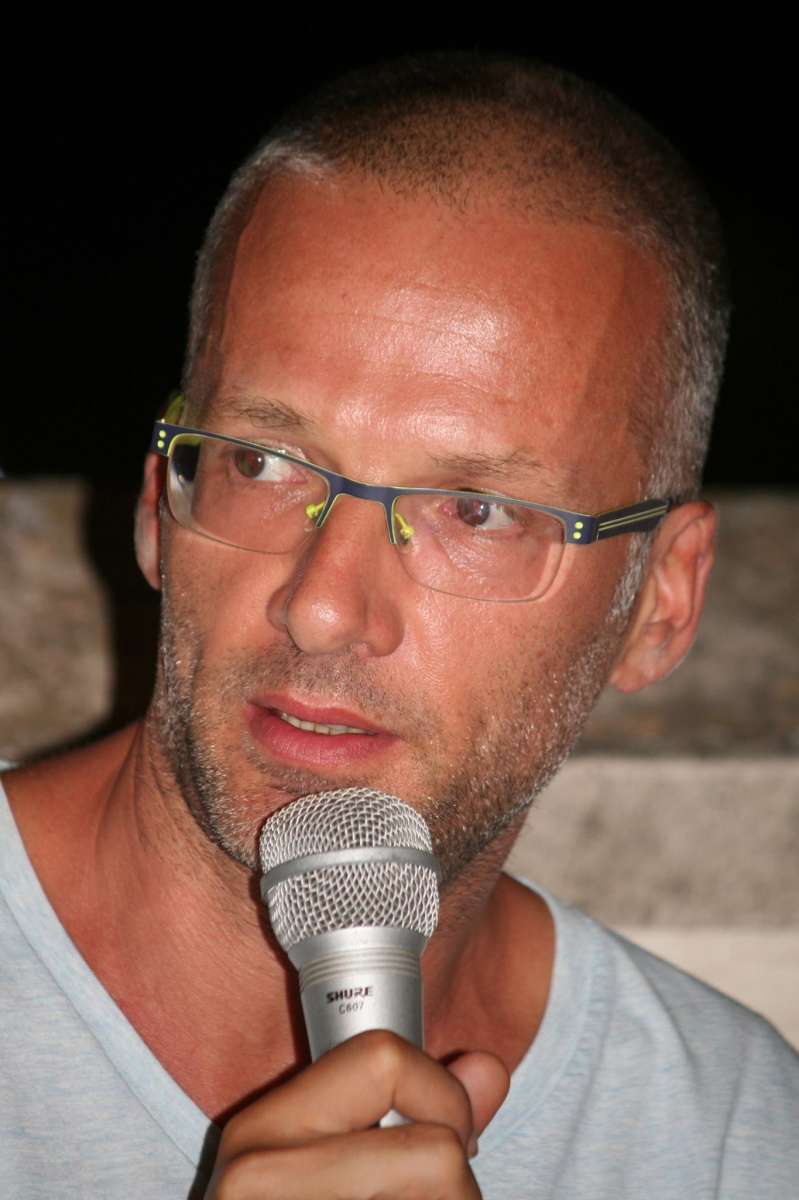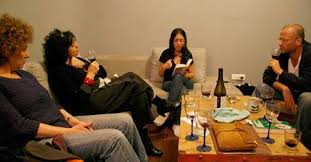Culture
BOOKSURFING: BRINGING STRANGERS TOGETHER THROUGH TEXTS
Five years ago, 48-year-old Raz Spector returned to

“This was back in the summer of 2013. Now we have a Wikipedia entry... After 3,000 surfs, they decided we deserved a Wiki entry.”
Surfs involve a group of people, typically seven or eight, each of whom brings a short text to share with the group. The very first surf was in Tel Aviv and had seven people. Three never came back and three became dedicated, regular surfers.

“It was a rather exciting, weird event that first one,’ Spector recalls. “I started realizing afterwards that to allow this thing to spread its wings, I needed to work on the infrastructure – the local organizers. I beefed up the Facebook presence and created groups to make it accessible to everyone in
Spector’s foray into social media proved fruitful. BookSurfing’s general Facebook page has approximately 5,700 likes, and the initiative itself has over a thousand active participants in
There are currently active surfs in 10 cities outside of

There are six rules for organizing a BookSurf:
1. Every participant will read out loud to the entire group.
2. The participants may use any readable text.
3. The text (or extract) read out loud must not exceed a page and a half (about 450 words).
4. In every session, at least one of the participants must be new to BookSurfing.
5. Among the participants there should always be some people who don’t know each other.
6. Every surf must have a moderator.
Any text can be read, but it’s mostly literature. No one checks what text participants are bringing, and no one knows what they will be. This yields all kinds of unexpected sources and surprises. Themes are usually chosen by the hosts, and have run the gamut from the color blue, recently deceased Israeli author Amos Oz, to the country of

BookSurfing became a registered NGO in 2016, and a small team of board members pay a nominal yearly membership fee. Libraries, elder centers and hotels are charged a small fee to host the surfs, which are happening more and more. In those instances, the BookSurfing team functions as the producers of the events and as moderators as well. This year, there will be between 70 and 90 events of that ilk. This constitutes a small source of revenue, but the hope for the future, like with any NGO, is that they will garner support from a foundation or a government ministry.
https://www.youtube.com/watch?v=PUGuMNoPINw
Photo: BOOKSURFING website
2. The participants may use any readable text.
3. The text (or extract) read out loud must not exceed a page and a half (about 450 words).
4. In every session, at least one of the participants must be new to BookSurfing.
5. Among the participants there should always be some people who don’t know each other.
6. Every surf must have a moderator.
Any text can be read, but it’s mostly literature. No one checks what text participants are bringing, and no one knows what they will be. This yields all kinds of unexpected sources and surprises. Themes are usually chosen by the hosts, and have run the gamut from the color blue, recently deceased Israeli author Amos Oz, to the country of

BookSurfing became a registered NGO in 2016, and a small team of board members pay a nominal yearly membership fee. Libraries, elder centers and hotels are charged a small fee to host the surfs, which are happening more and more. In those instances, the BookSurfing team functions as the producers of the events and as moderators as well. This year, there will be between 70 and 90 events of that ilk. This constitutes a small source of revenue, but the hope for the future, like with any NGO, is that they will garner support from a foundation or a government ministry.
https://www.youtube.com/watch?v=PUGuMNoPINw
Photo: BOOKSURFING website
Stories for you more +